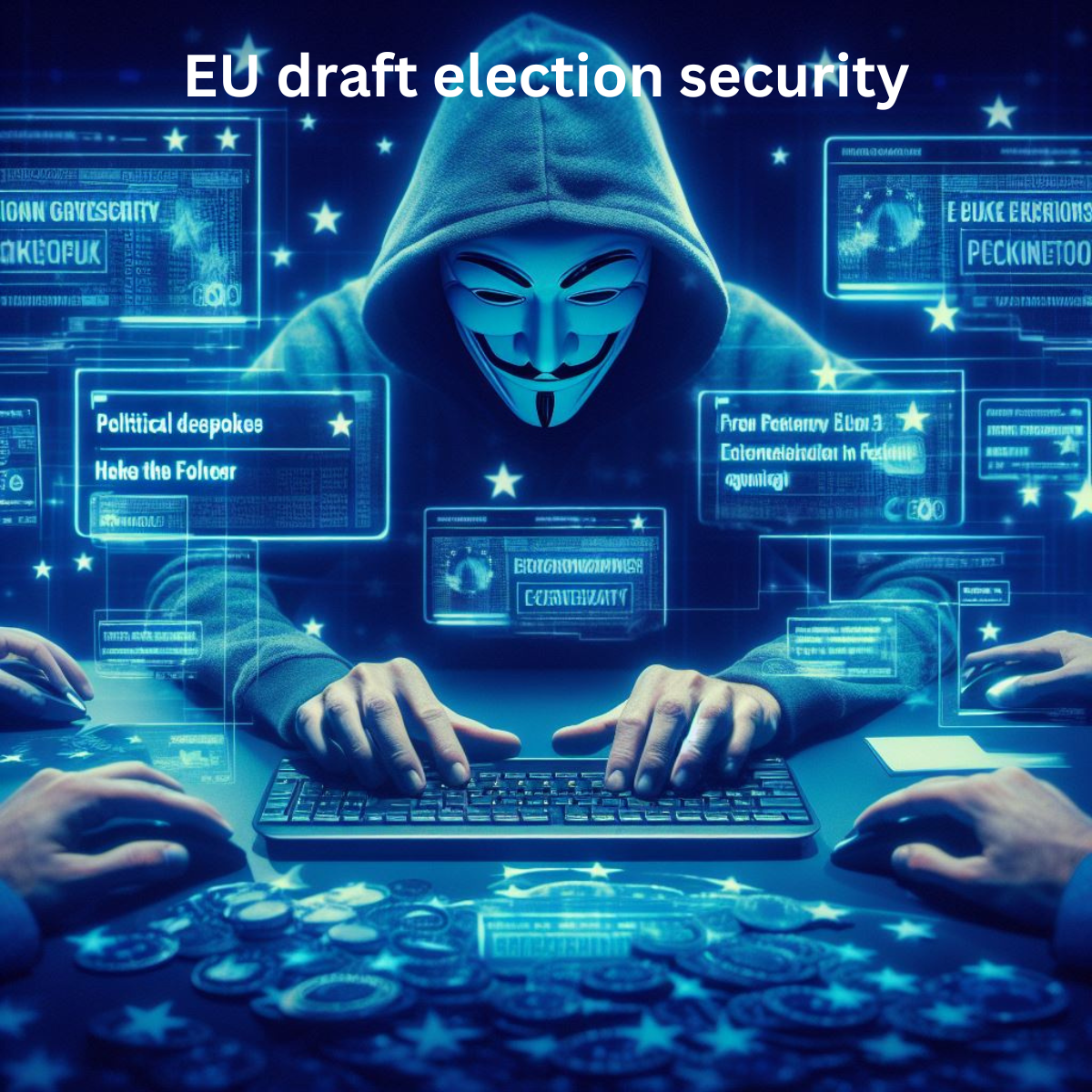In an era where misinformation and disinformation pose significant threats to democratic processes, the European Union (EU) has taken a proactive stance by drafting election security guidelines that specifically address the looming specter of political deepfakes. As the technology to create convincing deepfakes becomes increasingly sophisticated, policymakers around the globe are grappling with how to safeguard the integrity of elections and public discourse. The EU’s proposed guidelines signal a recognition of the urgent need to address this issue head-on. EU election security guidelines deepfakes
Deepfakes, which are manipulated videos or audio recordings that use artificial intelligence (AI) to depict individuals saying or doing things they never actually said or did, have the potential to sow confusion, undermine trust, and manipulate public opinion. From fabricated speeches by political leaders to false endorsements and malicious propaganda, the implications of political deepfakes are profound and far-reaching.
The EU’s draft election security guidelines aim to establish a framework for combating the spread of political deepfakes and ensuring the transparency and integrity of electoral processes. Key components of the proposed guidelines include:In an era where misinformation and disinformation pose significant threats to democratic processes,
the European Union (EU) has taken a proactive stance by drafting election security guidelines that specifically address the looming specter of political deepfakes. As the technology to create convincing deepfakes becomes increasingly sophisticated, policymakers around the globe are grappling with how to safeguard the integrity of elections and public discourse. The EU’s proposed guidelines signal a recognition of the urgent need to address this issue head-on. EU election security guidelines
Awareness and Education: The EU emphasizes the importance of raising awareness among citizens, election officials, and stakeholders about the existence and potential impact of political deepfakes. Education campaigns can help individuals better discern between genuine content and manipulated media, empowering them to make informed decisions.
Detection and Mitigation: The guidelines underscore the need for robust mechanisms to detect and mitigate the spread of political deepfakes. This involves leveraging technological solutions such as AI-driven algorithms and digital forensics tools to identify manipulated content and prevent its proliferation on online platforms and social media. EU election security guidelines deepfakes
Collaboration and Cooperation: Recognizing that combating political deepfakes requires a coordinated effort across multiple stakeholders, the EU advocates for collaboration between governments, tech companies, civil society organizations, and the media. By sharing expertise, resources, and best practices, stakeholders can collectively enhance their ability to address this evolving threat.
Regulatory Framework: While the EU acknowledges the challenges associated with regulating the creation and dissemination of deepfakes due to issues of freedom of expression and technological complexity, the guidelines suggest exploring regulatory measures to hold malicious actors accountable and deter the malicious use of deepfake technology. EU election security guidelines deepfakes
Transparency and Accountability: Upholding transparency and accountability in the digital sphere is essential for maintaining trust in democratic institutions. The EU’s guidelines emphasize the importance of transparency measures, such as labeling or tagging potentially manipulated content, to inform users about the authenticity of media they encounter online.
By proactively addressing the threat of political deepfakes through comprehensive guidelines, the EU demonstrates its commitment to upholding the integrity of elections and safeguarding democratic values. However, the effectiveness of these guidelines will ultimately depend on their implementation and enforcement by EU member states, as well as ongoing collaboration with international partners and stakeholders.
In an increasingly interconnected and digitally mediated world, the proliferation of political deepfakes poses a complex and multifaceted challenge. While technological advancements have made it easier than ever to create and disseminate manipulated media, concerted efforts at the national, regional, and global levels are essential to counteracting this threat and preserving the integrity of democratic processes. The EU’s draft election security guidelines represent a crucial step forward in this ongoing struggle to defend democracy in the digital age.
an era where misinformation and disinformation pose significant threats to democratic processes, the European Union (EU) has taken a proactive stance by drafting election security guidelines that specifically address the looming specter of political deepfakes. security guidelines deepfakes


2 thoughts on “Political Deepfakes in Focus: EU’s Draft Election Security Guidelines”